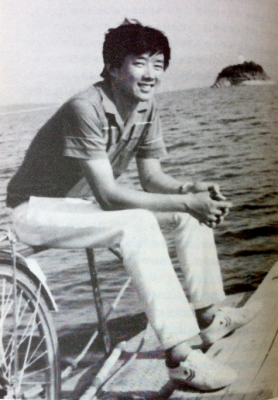In recent days, news of the passing of Li Junxu (李君旭) has been little more than a whisper, muffled amid the story of the crackdown on Dongguan’s sex trade. But 38 years ago, Li Junxu was the centre of a great big news story when it was reported that the 23 year-old factory worker had been arrested for fabricating a text called “The Last Will and Testament of the Premier” (总理遗言).
The world of Chinese politics is a black box, and black-box politics naturally gives rise to “rumour.” I remember very clearly the end of the Cultural Revolution, how people would whisper things privately and pass on speculative information. The core of most of this speculation was Jiang Qing, Mao Zedong’s last wife. In 1976, Deng Xiaoping was criticized in the movement to “strike back against the right-deviationist wind.” In the midst of this, Zhou Enlai passed away and this drove an undercurrent of rumour and speculation.
In Hangzhou, Li Junxu drew up a fictional “Last Will and Testament” for Zhou Enlai. In March and April 1976, Li’s document spread rapidly across China.

[The above image is of Li Junxu. The image is from Yuan Minzhu’s book, Reassessing the ‘Premier’s Will Case’ of 1976 That I Experienced]
The tone of Li Junxu’s letter was weighted with the sentiment of burden and humiliation. “Do not keep my ashes, but rather throw them away. Goodbye, my comrades!” When we look at the document years later, we can recognise clearly how it validates Zhang Chunqiao (张春桥) and Wang Hongwen (王洪文), but more important is what comes later: “Comrade Deng Xiaoping has done great work on a number of fronts over the past year . . . The pressures to come for Deng Xiaoping will be much greater, but so long as the path is correct, whatever difficulties can be overcome.”
These were fateful words at a time when Mao Zedong was in the midst of “criticising Deng and “striking back against the right-deviationist wind.” On April 1, 1976, The authorities proclaimed that “the so-called Last Will and Testament of the Premier is entirely counter-revolutionary rumour,” and called for an investigation. Just a few days later the “April 5” Tiananmen incident broke out, and Party media argued that political rumour had paved the way for the Incident and that rose who “fabricated counter-revolutionary rumours” must be suppressed. (People’s Daily, April 18, 1976, “What Does the Incident on Tiananmen Square Demonstrate?”.)
Party media said:
In spring this year, as the struggle against the right-deviationists was in full swing, achieving victory after victory, a flood of counter-revolutionary political rumours flooded up from the sewers. A small contingent of class enemies whipped themselves into a frenzy and manufactured the so-called “Directive from Mao Zedong, ” the so-called “Central Document,” the so-called “Last Will and Testament of the Premier,” the so-called “Speech from a Central Party Official,” and so on. They conspired to use the high prestige of Mao Zedong and the Central Party to peddle their black reactionary wares. This is a dangerous and poisonous counter-revolutionary strategy. The content of these political rumours is reactionary, their language is poisonous, their plot is bizarre and their methods disgusting!” (People’s Daily, May 5, 1976.)
The search for the originator of the “Last Will and Testament of the Premier” had begun. Thousands of people across the country were interrogated, and finally Li Junxu and six others were arrested. Li was subjected to brutal treatment while in prison. He was forced to spend long periods of time under powerful lamps, and later suffered from chronic insomnia requiring medication.
In the early 1980s, I once met Li Junxu, a man my own age, from the same hometown — and in fact a professional colleague, like me a writer of reportage who had won a national prize. Never did I imagine that this writer, so full of vitality, would be struck with illness soon after our meeting. In 1989 he suffered a brain haemorrhage that resulted in severe memory loss.
“Rumours” created. “Rumours” believed. “Rumours” passed on. “Rumours” denied. Then, inevitably, rumourmongers punished. This is a story that has played out time and again in China. In many cases, these so-called “rumours” are ultimately shown to be truths that are politically inconvenient. Other “rumours,” like Li Junxu’s will and testament, are actually creative works that express popular anger in an indirect way. This is the nature of Chinese politics. In 2013, Chinese a leaders once again launched am internet crackdown touted as (what else?) a campaign against “big rumours.”
Some of the din and clamour we hear today prompts us to think back to 1976. The spirit of Mao still lingers. This is precisely why those who care about Chinese politics must understand the Cultural Revolution — and why they must learn about “The Last Will and Testament of the Premier” and it’s author, Li Junxu.




















